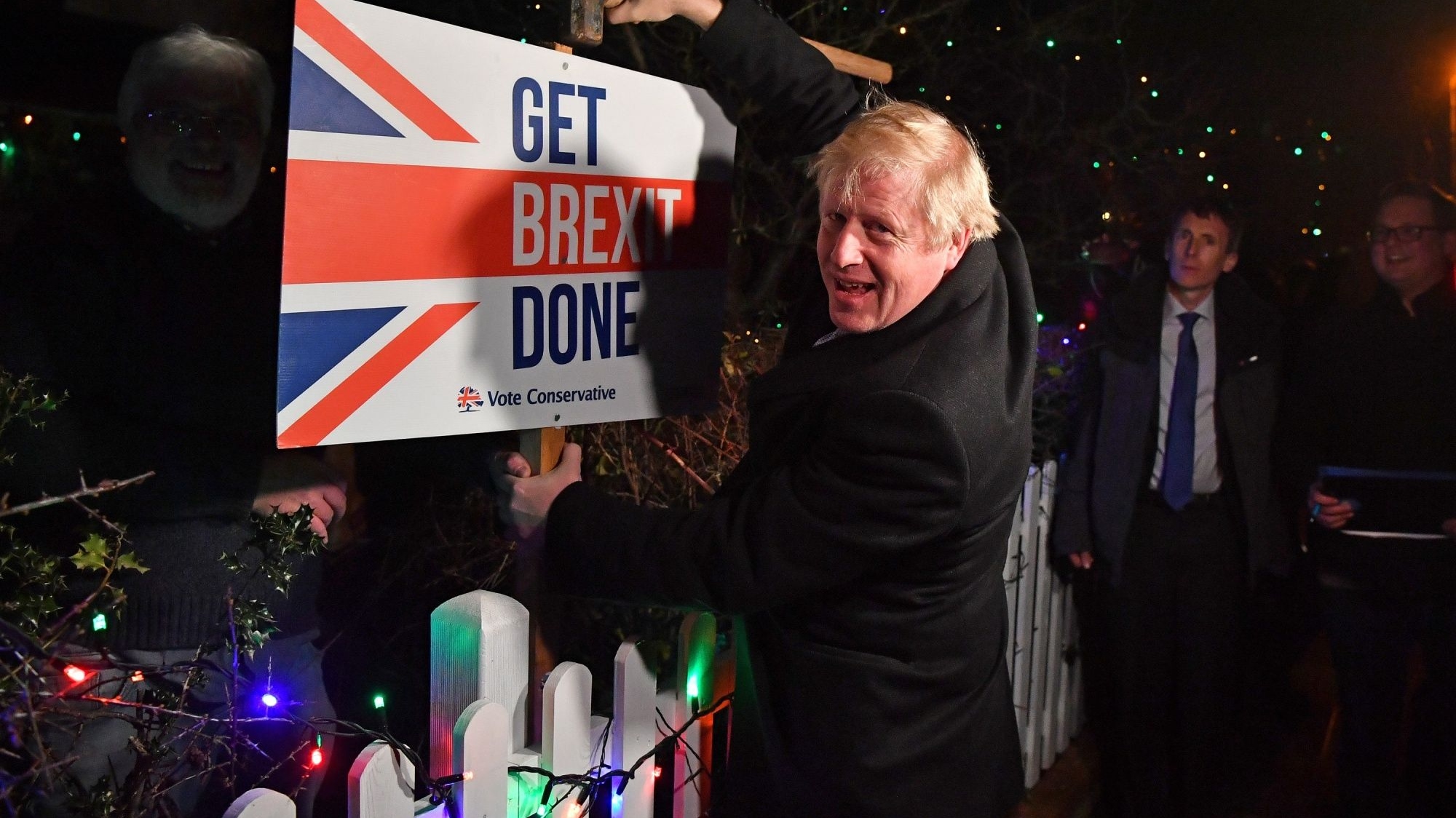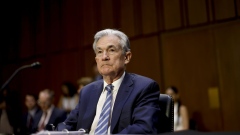Jan 31, 2020
Boris Johnson will have a hard time killing the word 'Brexit'
Challenges for new U.K.- EU trade deal
Shortly after his election victory in December, it was reported that Boris Johnson wanted the word Brexit retired. Not just retired, but expunged as a matter of urgency once the U.K. has left the European Union on Jan. 31.
This would be like Donald Trump telling White House staff that they need to drop the “Make America Great Again” thing. Without Brexit — and his “Get Brexit Done” campaign — we’d mainly know Boris Johnson as just another former mayor, a talented politician who wrote amusing newspaper columns.
This attempted change of language seems trivial, but it’s not. For nearly four years, the neologism Brexit has dominated British politics, and resonated around the world. Why try to retire it now? I can see two reasons: the word is a constant and powerful reminder of the division and open wounds in British society; and while it was a weapon Johnson wielded successfully against his opponents, it might easily be used against him in future. The first concern is honorable, the other more Orwellian. But how successful Johnson is in changing the language of British politics might prove as important as anything he gets around the trade negotiating table with the European Union and the U.S. this year.
The word Brexit appeared back in 2012. Peter Wilding, a former lawyer and aide to former Prime Minister David Cameron, had little idea of its impact when he coined it in a May 2012 blog, inspired by the Greeks:
Unless a clear view is pushed that Britain must lead in Europe at the very least to achieve the completion of the Single Market, then the portmanteau for Greek euro exit [Grexit] might be followed by another sad word, Brexit.
A few years later, it spread like bush fire. By 2016, it had a place in the Oxford English dictionary and was later named “word of the year.” But Wilding was appalled to find his invention used as a tool of destruction. Now chairman of the British Influence think tank, he sees Brexit as a “narcissistic victim syndrome ignited by charlatan nostalgists.” He has said it might do to Britain what the Treaty of Versailles did to Germany.
Brexit, in Johnson’s hands, wasn’t a flaccid noun but a powerful verb. One might argue you could have called Britain’s EU departure campaign pretty much anything and the result would have been the same. Perhaps, but something happened when those two words — British exit — were fused. It became a rallying point for a passionate, but small, euroskeptic core of Johnson’s ruling Conservative party. It anchored a Leave campaign whose language invoked national pride, appealed to people’s bias for action over inaction and their preference for simplicity.

In his book, The Language of Brexit, the linguist Steve Buckledee shows how skillfully this was done. Brexit stirred passion and represented action; Remainer language was limp by comparison and passive. The British Twitter poet Brian Bilston captured the power of the word in the last stanzas of a poem entitled Meaningful Vote, which was the name given to the attempts of Johnson’s predecessor, Theresa May, to win parliamentary approval for her Brexit deal:
How foolish, it seems;
How senseless, absurd,
To re-define a nation
In pursuit of a word.
Johnson, of all politicians, understands the mobilizing and seducing power of language. He’s probably the most prolix (and prolific) political leader Britain has had since Winston Churchill. He loves words that pack heat. He famously denied an affair by calling the allegations an “inverted pyramid of piffle.” He often invents words where a conventional formula won’t do — such as “backstop-ectomy” to denote his determination to remove an element of May’s Brexit deal known as the Irish backstop, which he and other Brexiters disliked.
But now that the war is over, the weapon looks unsightly. Brexit represents a heroic and victorious campaign for freedom to one side of the divide, but a perfidious act of self-harm to the other.
Even many Brexiters are battle weary and spent, no doubt worried about how well things we go from here for Britain. Hedge Fund manager Crispin Odey, a vocal Brexiter, is holding back on the mirth. Sarah Vine, the columnist wife of cabinet member Michael Gove, says being on the winning side has left her numb. “I think, like many Leave voters the length and breadth of the country, I have found the hatred and vitriol of the past few years ultimately very brutalizing,” she wrote for the Daily Mail (not exactly a bastion of temperateness). “We Leavers have been accused of innumerable crimes, cast as racist, short-sighted, xenophobic and, above all, thick and uneducated. We’ve been compared to the Nazis, been blamed for the actions of every lunatic extremist, accused of lying — not to mention held responsible for every stock market fluctuation (downwards, naturally) or passing economic squall.”
If that’s how the victors feel, spare a thought for the losers. Johnson won the war, but he won’t succeed in keeping his new Conservative coalition together (which includes plenty of Remain voters who were fearful of allowing Labour’s hard-left leader Jeremy Corbyn into power) if the loaded language of Brexit frames all discussion.
But burying Brexit, the word, is a way of shirking responsibility too. If everything that happens from now is just another tick on the plus or minus side of the Brexit ledger, the divisions will eventually tear away at Johnson’s power and every concession over fish or drop in GDP growth will be seen as an indictment of the Brexit campaign that swept him into Downing Street.
By getting rid of the Department for Exiting the EU and rechristening the U.K. negotiating side something positive like Taskforce Europe, Johnson is saying “nothing to see here but some tedious trade negotiations.” Why should voters worry about such minutia as will be discussed when Britain and the EU sit down to work out their future trade relationship? If the word Brexit is a call to battle, “trade taskforce” is an invitation to snooze. That must be the hope, anyhow: That if Brexit is only muttered occasionally, somewhat apologetically, or better yet, not said at all, there will be less scrutiny — and criticism — of what lies ahead.
Separating Britain from the EU is bound to be painful. Johnson’s ultimate political survival may depend on whether he can denuclearize the domestic conflict he waged so successfully with Wilding’s B-bomb.



